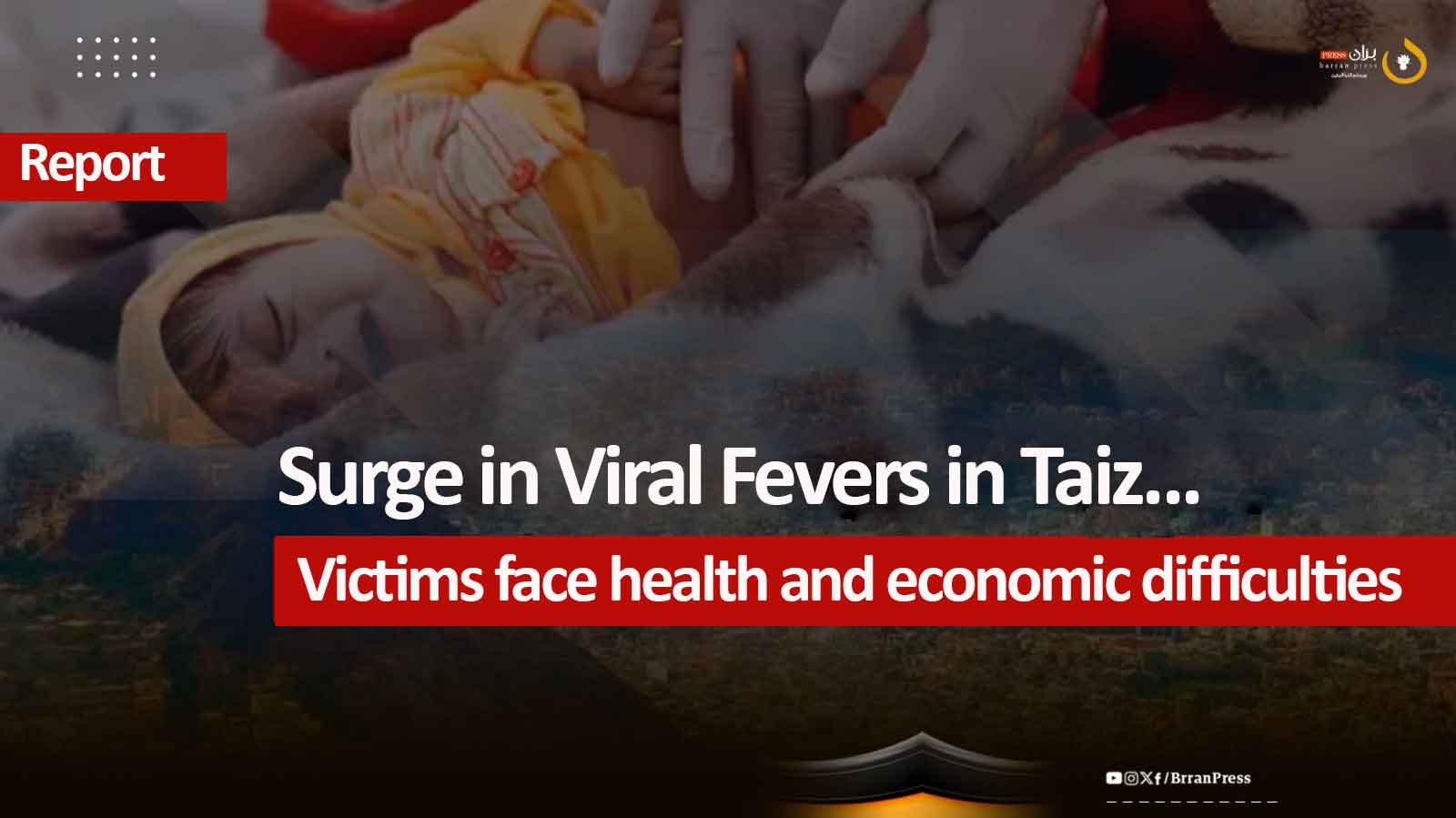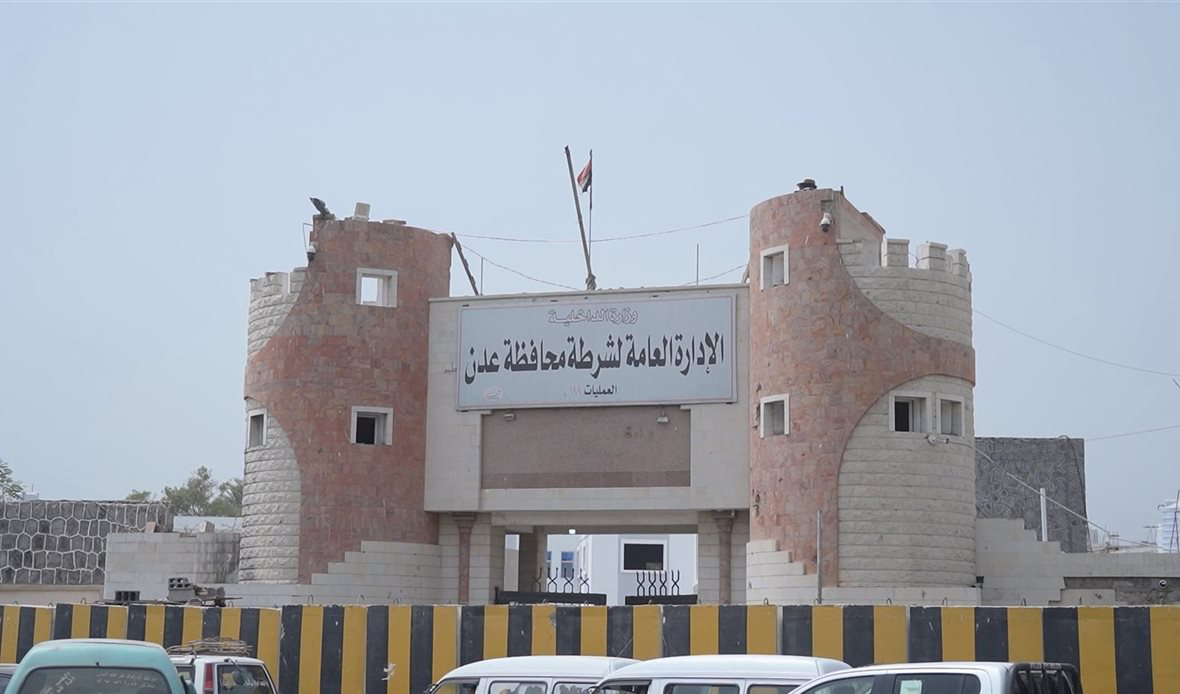
Barran Press - Eynas AL-Hemiari
TAIZ, YEMEN — The Taiz governorate in southwestern Yemen is experiencing a significant rise in cases of viral fevers and infectious diseases, further straining health and economic conditions for local residents.
With increasing instances of dengue fever, diarrhea, and upper respiratory infections, residents are struggling to access treatment amid soaring healthcare costs.
Struggles of Local Families
Citizen Salah Mohammed shared his experience with the illness of his seven-year-old daughter. "I work as a daily laborer, and some days I find work while others I don’t. My daughter fell ill, and I couldn't get her help because I had no money. I barely manage to provide food and drink for my family," he told Barran Press.
He added, "When her fever rose, I gave her painkillers to avoid taking her to the hospital. If I had money one day, I would buy a quarter of a chicken to make broth to boost her immunity." After a week of suffering, he reported that his daughter recovered, but this is not the first time he has faced such a crisis.
Similarly, Umm Mohammed described her health setback. After undergoing medical tests, she discovered she had a viral fever. "My children and husband developed the same symptoms. Even my married daughter called to tell me her son was sick with diarrhea and needed emergency care. We all ended up relying on IV fluids and medical injections," she recounted.
"This year, for the first time, I’ve witnessed a widespread outbreak of fevers. Previously, only one or two family members would fall ill, but this year, we all got sick, sometimes at the same time."
Statistics
According to recent statistics from the Taiz Health Office, there have been 43 reported deaths from acute watery diarrhea and cholera since the beginning of the year. The city has recorded 6,682 cholera cases, with 781 confirmed through laboratory tests.
For dengue fever, there have been 2,542 reported cases this year, along with 1,286 cases of measles, resulting in eight fatalities. The epidemiological data for September and October shows 1,132 cases of fevers in Taiz city, indicating the ongoing spread of these diseases.
Main Causes
Dr. Mustafa Abdul-Ghaffar, a general internal medicine specialist, identified upper respiratory infections, dengue fever, and childhood diarrhea as the most prevalent viral illnesses in Taiz. He noted that symptoms often overlap, making it difficult to distinguish between viral and bacterial fevers.
Dr. Mustafa emphasized the need to eliminate stagnant water and combat mosquitoes, which he identified as the primary cause of dengue fever outbreaks.
Rising Costs and Medication Shortages
Regarding treatment costs, Dr. Mustafa reported that prices have surged significantly. "Most families cannot afford treatment, which can reach 15,000 Yemeni rials per person." Consequently, some families resort to traditional remedies like lemon and painkillers, which are temporary and ineffective solutions.
He mentioned that although there is a free pharmacy at the Al- Taawoun Hospital in Taiz providing basic medications, many people are unaware of it or prefer not to visit due to overcrowding with sick patients.
Notable Improvement
Taysir Al-Same’i, the health media officer in the Taiz Health Office, reported a noticeable improvement in health conditions compared to previous years. "This year, we have seen a reduction of over 50% in dengue fever cases," he stated.
He attributed this improvement to measures taken to combat the mosquitoes that transmit the fever and the awareness efforts conducted by the health education department in collaboration with international and local organizations.
Despite this progress, he acknowledged that "challenges remain significant," highlighting a 50% shortfall in hospital beds and a critical shortage of medications and medical supplies.
Ongoing Challenges
Dr. Mustafa attributed the spread of these epidemics to poor environmental conditions, such as waste accumulation and stagnant water, which create ideal breeding grounds for mosquitoes. He noted that "the presence of unclean water and waste facilitates the spread of mosquitoes that transmit dengue fever," emphasizing a clear lack of action from relevant authorities to clean these areas and conduct insecticide spraying campaigns.
Dr. Yasin Abdul-Malik, the director of epidemiological surveillance at the Taiz Health Office, underscored the importance of eliminating these environmental hotspots, accusing local authorities of failing to address the issue. "We have sent a message to local authorities and district directors to remove these breeding sites, but unfortunately, no action has been taken yet," he said.
Abdul-Malik warned of a potential increase in cases, noting that daily reported dengue cases have surged from 6-7 to 20-30.
Prevention Advice
As individual and community efforts continue to combat these outbreaks, Dr. Mustafa stressed the importance of public awareness, urging citizens to "avoid areas where mosquitoes thrive, use mosquito nets while sleeping, and cover stored water to prevent mosquito breeding."
He also recommended "quarantining those infected with upper respiratory illnesses to avoid transmitting infections to others."
Furthermore, Dr. Abdul-Malik emphasized the importance of vaccinating children, especially with the rise of childhood diseases like measles and whooping cough. He believes that "vaccination is the best solution for preventing these diseases," lamenting that some families do not immunize their children due to misinformation about vaccines.
As families in Taiz continue to struggle with these epidemics, the primary solution remains providing a clean, healthy environment and ensuring access to affordable medical care. Abdul-Malik reassured that "solutions are not far off, but they require ongoing and concerted efforts."





